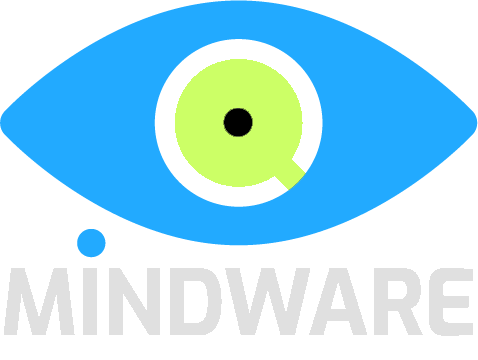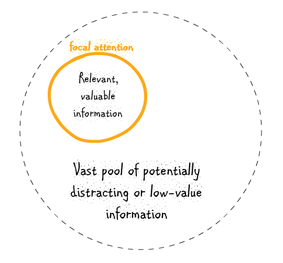 Tim Ferriss calls it the key to his success, and has written and podcasted extensively on it. In their annual Global Talent Trends 2019 report, LinkedIn singled it out as one of the top five most in-demand skills employers seek:
Tim Ferriss calls it the key to his success, and has written and podcasted extensively on it. In their annual Global Talent Trends 2019 report, LinkedIn singled it out as one of the top five most in-demand skills employers seek:
Your ability to prioritize and focus your attention to effectively manage your time.
A recent Forbes article has identified common-sense focal-points – memes in the productivity-advice space – that help with this. [1]
- Learn to to say no. We need to subtracting things from our lives that distract us from what we want.
- Learn to prioritize. Realize that not all tasks are created equal.
- Eliminate distractions. With many things vying for your attention, do whatever it takes to remove distractions and help you focus on the matter at hand.
- Monotask rather than multitask. You need to focus on one thing at a time more deeply to make real progress.
- Take breaks to recharge. Though it seems counterintuitive to productivity it’s important to schedule downtime periods during the day.
Intelligence and attention
Research confirms there is a tight coupling between general intelligence and attention.
The statistician Charles Spearman back in the early 1900s was the first person to demonstrate that different cognitive test scores reflect a single general intelligence factor – the g factor or Spearman’s g. [2]
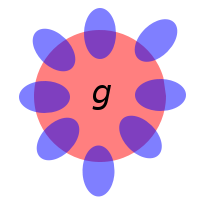
Many of you may not know that Spearman proposed that attentional capacity may be its essential source of g.
“Attention is a resource—a person has only so much of it.” Matthew Crawford, University of Virginia
This world has a cacophony of noise and distractions. As content has grown increasingly abundant and immediately available, your attention capacity becomes the limiting factor in how your brain processes information.
As the Nobel Prize winning economist and psychologist Herb Simon has said – if we’re smart we “allocate that attention efficiently among the overabundance of information sources that might consume it” Our information-processing brains need to use our limited attentional capacity to filter the most important or valuable information from a large pool of information surrounding us.
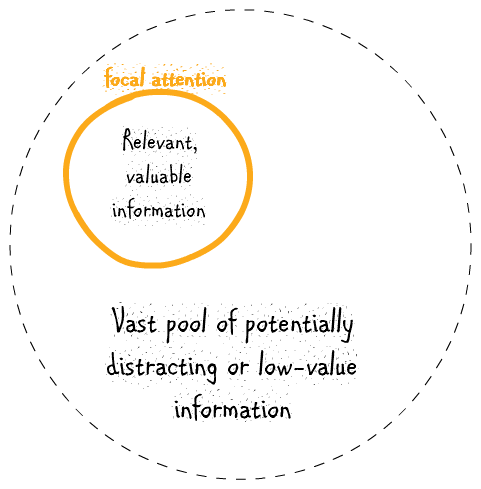
Numerous definitions of intelligence by researchers in the field uncover the link between intelligence and attention: [3]
“Intelligence is the power to rapidly find an adequate solution in what appears…to be an immense search space.” D. Lenat and E. Feigenbaum
“…capacity for perceptual recognition, quickness, range or flexibility or association… span of attention, quickness or alertness in response.” F. N. Freeman
“Intelligence is the ability to use optimally limited resources to achieve goals.” R. Kurzweil
The attention-intention space
These definitions emphasize ‘solutions’, ‘responses’ and ‘goals’. Using attention effectively to in the service of our intentions, to improve the decisions we make and the actions we take, lies at the heart of being smart, adaptive, autonomous and successful.
“Tremendous growth and learning occur at the intersection of attention and intention. When you’re in that space, what you observe—and then take action on—can catapult your career.” Amy Blaschka, Forbes

Attention is how you filter information. Intention is how you commit to what you want through your decisions. It is action-oriented and requires clarity of purpose.
Focus and mindfulness: In the zone
Knowing how to manage your limited attention capacity is associated closely with the concept of flow or being ‘in the zone’ – a mental state in which a person performing an activity is fully immersed in a feeling of energized focus. [4] Attention capacity is a measure of both:
(1) your ability to be highly selective and focused with your time and energy, and aligning them with your goals.
(2) your ability to open and receptive enough to allow alternative—and sometimes, even better—possibilities to emerge.
In problem solving terms, creating an environment where you’re both focused on the task at hand with interruptions are minimized and receptive in a mindful way, you’ll not only be more likely to attain your goals, but also increase the odds of observing things that others might miss—patterns, errors, or new opportunities to find solutions in the search spaces you encounter daily.
For example:
- You are working on practice questions for an exam, and since you are in the right ‘attention zone’ – balancing focus with receptiveness – you notice repeated – and thus predictable – categories of problem-types.
- You’re trying to learn a new skill, and by paying attention you notice that you’re making consistent errors in e.g. timing, and this accelerates your learning.
- At work, you notice a pattern of customers behaving in an unintended and unique way…and that provides an insight into a brand new market.
- While reviewing accounts, discover an accounting error…that leads to saving the company a lot of money.
gFOCUS: An attention training app
Attention capacity can be trained for long-term neuroplasticity gains.
The gFOCUS attention training app implements a training task used in a neurofeedback experiment to augment attention capacity developed by researchers at Princeton’s Neuroscience Institute (Closed–Loop Training Of Attention With Real–Time Brain Imaging).
This research demonstrated the effectiveness of this kind of training, concluding:
“These findings suggest that attentional failures do not reflect an upper limit on cognitive potential and that attention can be trained….”
A host of recent research demonstrates the effectiveness of attention training. [5, 6, 7]
The gFOCUS app is at the cutting-edge of attention training and improves focus, sustained attention, vigilance and mindfulness.
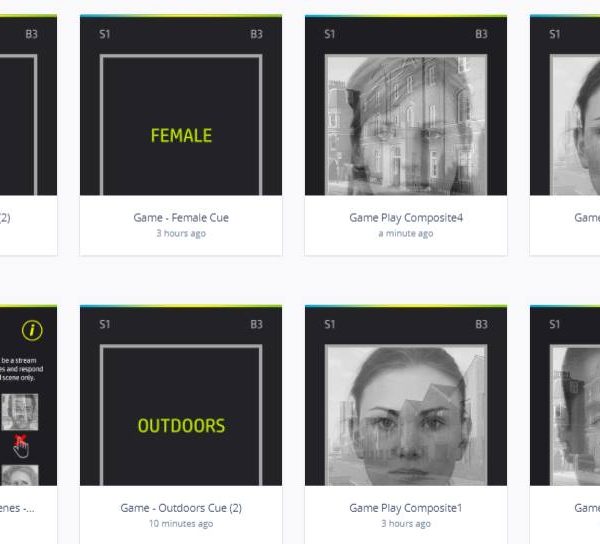

Cognitive resilience
This app implements two training options: neutral and emotional. The latter uses emotionally charged stimuli to train attention-based cognitive resilience. This may be an option if you are experiencing stress-based anxiety or depleted energy, or if you simply want to extend your attention training to the ‘limbic brain’ to help remain cool and focused in the midst of emotionally charged distraction.
Sustained attention
gFOCUS trains sustained attention. This is the ability to focus over an extended period of time without the mind wandering. Sustained attention can be divided into:
Concentration – the ability to focus on a task for long periods of time despite tempting distractions or mind-wandering.
Mindfulness – the ability to detect or notice something when lapses of attention and ‘zoning out’ are common. This is a kind of mindfulness where your attention stays fresh even in boring or monotonous situations.
This training results in long-term should help you get ‘in the zone’ while augmenting your attention capacity.
gFOCUS user feedback
We have had a lot of positive feedback from gFOCUS users, sometimes used in combination with other dual n-back based apps. For example:
Since adopting the cognitive training in your apps and implementing dietary and exercise regimens to the best of my ability, changes in my performance, alertness, mood, and attitude have been impressive. My exam scores on official practice tests have increased dramatically, with analytics showing a 19% increase in overall accuracy, a 13-point jump in scaled score from first test to best, and a percentile increase of a whopping 47 percent. By conservative estimates, this indicates that I am now outperforming 47,000 more LSAT exam-takers than before training changes. R. Hickey
Some users have even benefited from gFOCUS as a diagnostic tool for the day:
I also noticed that doing a session of gFocus early in the morning represents a great indicator of daily performance. In other words, if your gFocus result is brilliant in the morning, if you feel you easily and quickly complete your gFocus session, then you will have a high cognitive performance during the rest of the day. S. Panucci
References
[1] Blaschka, A. (2019). Tim Ferriss Is The King Of This In-Demand Soft Skill: Here Are Seven Ways To Master It. Forbes. Retrieved https://www.forbes.com/sites/amyblaschka/2019/03/14/tim–ferriss–is–the–king–of–this–in–demand–soft–skill–here–are–seven–ways–you–can–master–it/
[2] Spearman, C. (1904). “”General Intelligence,” Objectively Determined and Measured”. The American Journal of Psychology. 15 (2): 201–292.
[3] Legg, S., & Hutter, M. (2007). A Collection of Definitions of Intelligence.
[4] Mihaly Csikszentmihályi (1990). Flow: The Psychology of Optimal Experience. Harper & Row.
[5] Trautwein, F.-M., Kanske, P., Böckler, A., & Singer, T. (2020). Differential benefits of mental training types for attention, compassion, and theory of mind. Cognition, 194, 104039. https://doi.org/10.1016/j.cognition.2019.104039
[6] Sanchez-Lopez, A., De Raedt, R., van Put, J., & Koster, E. H. W. (2019). A novel process-based approach to improve resilience: Effects of computerized mouse-based (gaze)contingent attention training (MCAT) on reappraisal and rumination. Behaviour Research and Therapy, 118, 110–120. https://doi.org/10.1016/j.brat.2019.04.005
[7] Liu, M., Zhang, J., Jia, W., Chang, Q., Shan, S., Hu, Y., & Wang, D. (2019). Enhanced executive attention efficiency after adaptive force control training: Behavioural and physiological results. Behavioural Brain Research, 376, 111859. https://doi.org/10.1016/j.bbr.2019.03.028

